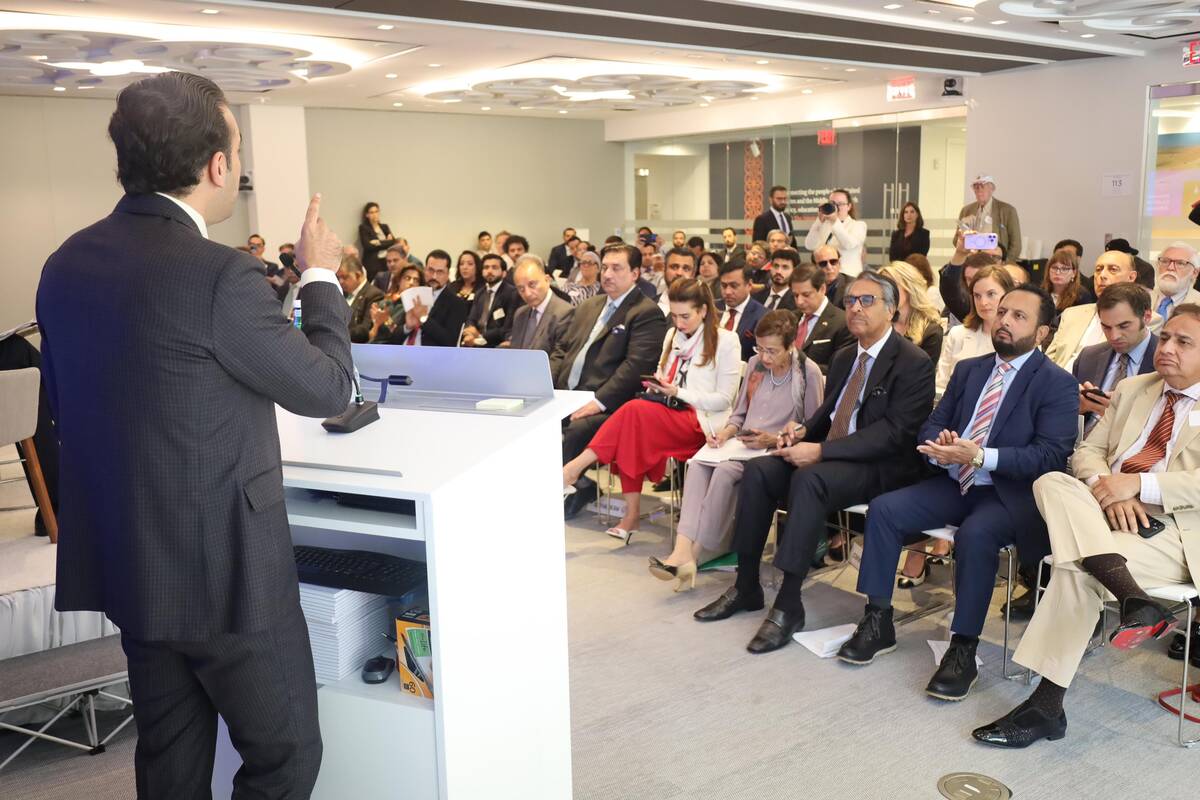KARACHI: Prime Minister Shehbaz Sharif applauded the International Monetary Fund (IMF) Executive Board’s decision on Wednesday to approve a stand-by agreement of $3 billion with Pakistan, saying the development would offer much-needed economic relief to his country and generate more fiscal room for the next government.
The two sides reached the agreement over a nine-month bailout package for cash-strapped Pakistan after intense negotiations last month. The development comes as a sigh of relief for the South Asian country, which has been reeling from a balance of payments crisis, as experts feared Pakistan would default on its external financial obligations.
“The approval of Stand-by Agreement of $3 billion by the IMF’s Executive Board a little while ago is a major step forward in the government’s efforts to stabilize the economy and achieve macroeconomic stability,” the prime minister said in a Twitter post. “It bolsters Pakistan’s economic position to overcome immediate- to medium-term economic challenges, giving next government the fiscal space to chart the way forward.”
He maintained his administration had managed to secure the deal “against the heaviest of odds & against seemingly impossible deadline,” praising the country’s financial managers for their team work.
Earlier, the IMF announced its decision to support Pakistan’s economic stabilization program in a statement posted on its website and said it would immediately disburse SDR 894 million or about $1.2 billion. The remaining amount would be phased over the program’s duration, subject to quarterly reviews.
“Pakistan’s new SBA-supported program will provide a policy anchor for addressing domestic and external imbalances and a framework for financial support from multilateral bilateral partners,” it added.
Faced with a major dollar liquidity crunch, Pakistan was even forced to restrict the import of essential items, which further depressed its economy and had a negative impact on its exports.
The IMF said its program would also focus on a “return to market-determined exchange rate” and proper foreign exchange market functioning to absorb external shocks and foreign exchange shortages.
It will also focus on a tight monetary policy that brings about disinflation and further progress on structural reforms with a particular focus on energy sector viability, governance of state-owned enterprises, and climate resilience.
The government managed to make the breakthrough after securing substantial funding from Saudi Arabia and the United Arab Emirates who collectively deposited $3 billion in the country’s central bank.
Islamabad took a slew of measures demanded by the IMF since its mission arrived in Pakistan in February, including revising its 2023-24 budget and a policy rate hike to 22 percent in recent days.



















